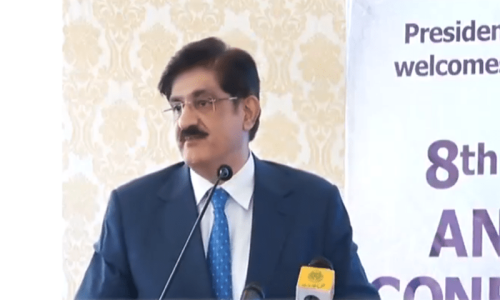KARACHI: While the project for an urban forest being proposed over 400 acres along the Malir River faces many challenges and is yet to be officially approved, experts have called upon the government to immediately start implementing small-scale measures to turn the city’s many barren parks and roadside spaces green.
These steps, they said, would not only provide citizens the much-needed respite in hot summer days but also help protect them from city’s increasing air pollution.
These experts were talking to Dawn in the backdrop of a recent news report indicating that the government plans to build the province’s first urban forest in Karachi as part of the Green Karachi Project.
Urban forest along Malir riverbed estimated to take 16 months to complete
Sharing salient features of the proposed urban forest project, Qazi Abdul Jabbar, Karachi social forestry circle conservator, said the pilot project estimated to cost Rs200 million had been proposed along the Malir riverbed located next to the Shah Faisal Colony flyover.
“The Malir River basin and embankments carry great potential for supporting tree growth in a compact block and linear form. The sewage and subsoil water can be made available for raising an urban forest,” he said.
The approximate available area for raising a forest in and along the riverbed, according to him, is 3,500 acres but after deducting the riverbed etc the net available area would be around 1,500 acres.
“We have suggested 400 acres for the pilot project estimated to take 16 months to complete once it starts,” he said.
On project’s implementation, he said that the process of gathering information about land’s status had just started after which a proposal would be submitted to the planning and development department for approval.
“As per rules of business and government laws, tree plantation within municipal/town limits is the function of municipal administrations. If the task of establishing an urban forest is assigned to the social forestry department, then necessary order/resolution is to be issued by the competent authority,” he said in reply to another question.
The project, he said, would help reduce urban heat island effects, improve air quality and contribute to economy.
The Malir riverbed and embankments, according to experts, are suitable for planting tree species, including guava, coconut, chiku, jamun, custard apple (sharifa), date palm, mango, papaya, babul, Acacia modesta (phulai), lignum, moringa (sohanjna), shisham and palm species.
Hurdles in the project
Speaking about the impediments in the project’s implementation, another forest department official said that one of the main challenges would be removal of encroachments from the land, a large part of which had been illegally used for cultivation of vegetables with sewage for a long time while some people had also built other infrastructure.
The removal of encroachments, he said, was a sensitive matter, fearing that it might involve litigation and delay the project.
Commenting on the project, Dr Zafar Iqbal Shams, senior ecologist and professor at Karachi University’s Institute for Environmental Studies, appreciated the idea but was of the opinion that the government should also focus on some immediate measures to improve the city’s environmental conditions.
“As it appears that the project would take time to implement, the government would do good to take notice of city’s degraded state of many parks,” he said, adding that Karachi had hundreds of small and big parks.
The concept of urban forestry, he said, involved the whole city and shouldn’t be looked at from only one perspective of allocating a separate space for an urban forest.
“If you go into areas such as Landhi, Lyari, Shah Faisal Colony and Malir, you would see parks almost barren. Why can’t we improve these spaces first?” he said.
In his opinion, selection of species is a scientific job and one should carry out soil and underground water examinations before plantation in a specific area.
“There are drought-resistant plants requiring less water as well as species which help improve soil condition and address the issue of sewage and water leakages. The other principle is to avoid monoculture and plant indigenous species,” he said.
He also regretted that conservation of the existing trees was not on the government’s priority list. “Even right now, you would see a mafia engaged in cutting down trees and there is no one to stop them.”
Asked about the pathetic state of parks, Abdul Jabbar said that parks were in the KMC and KDA jurisdictions and the corporation had a separate department for it.
“Having said that, the forest department under a memorandum of understanding signed last year with the KDA is engaged in plantation in a park in Gulistan-i-Jauhar. So far, we have planted 500 trees and plan to take care of another park in the same area once the KDA promises availability of water to the park,” he said.
He admitted lack of inter-departmental engagement, emphasising that collaborative efforts were needed to make Karachi green.
“I think there should be an official forum or committee comprising officials from the forest department, Karachi Development Authority, Karachi Metropolitan Corporation, Karachi Water and Sewerage Board as well as a few independent experts to monitor and improve the city’s plantation conditions,” he said.
Published in Dawn, February 6th, 2019














































